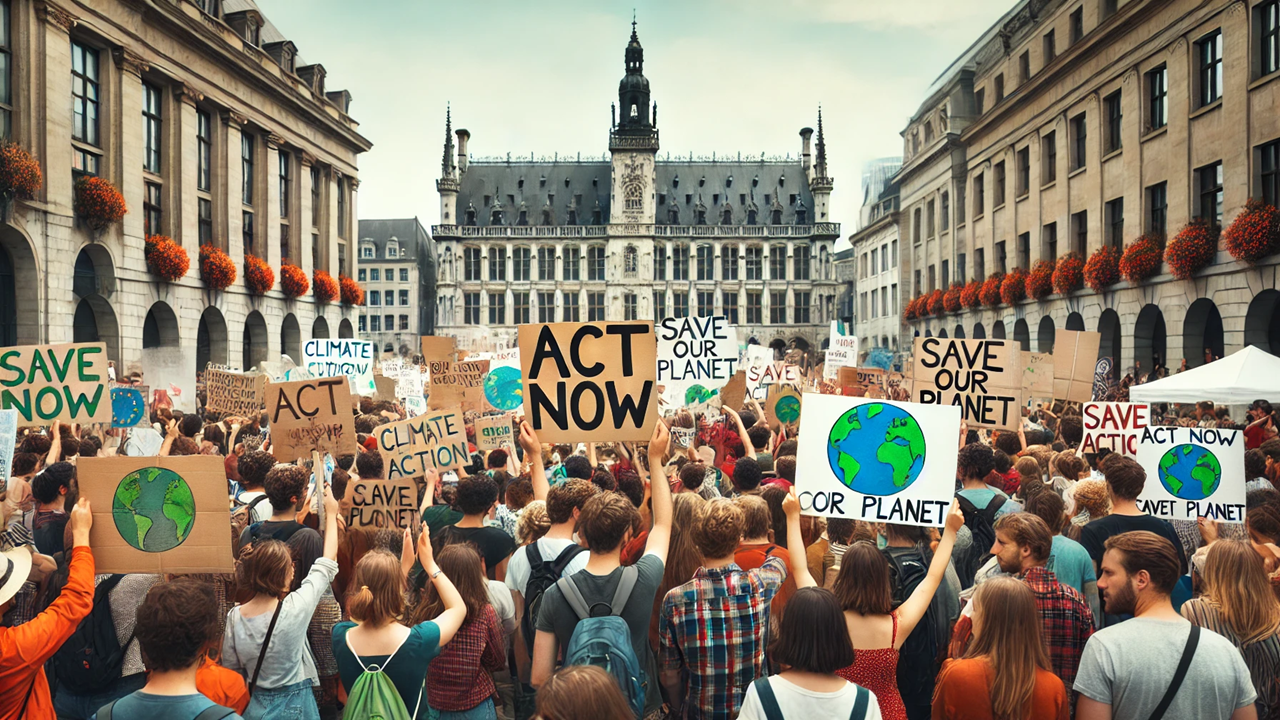Political Polarization Erodes Support for Climate Policies in Europe and Central Asia
A recent World Bank report titled "Why Did Support for Climate Policies Decline in Europe and Central Asia?" highlights a concerning decline in public willingness to support climate change policies in the region. Using data from the Life in Transition Survey, the report examines the fall in public support for tax-financed climate actions between 2016 and 2023, despite growing awareness of climate issues. Political polarization, particularly the rise of right-wing populism, is identified as the primary cause of this shift. The report emphasizes that climate policies need to be framed in ways that resonate across political divides to regain public backing.

Political Divides Undermine Climate Policy Support in Europe and Central Asia
In a world where climate change is an undeniable reality, public backing for policies to address the crisis should be steadily rising. However, according to a new World Bank report titled "Why Did Support for Climate Policies Decline in Europe and Central Asia?", the opposite is happening in several countries across Eastern and Central Europe and Central Asia. The report, based on data from the Life in Transition Survey, shows a sharp decrease in public support for climate policies between 2016 and 2023, despite growing awareness and media attention surrounding the climate crisis.
This surprising decline, particularly in willingness to pay higher taxes to combat climate change, raises important questions about the factors driving this trend. The report dives deep into the data and finds that one major factor stands out—political polarization.
The Rise of Political Polarization
The most striking finding of the report is that the increasing political polarization in Europe and Central Asia is at the heart of this issue. The study reveals that the rise of right-wing populism has significantly weakened public support for climate policies. These right-wing populist movements, which have gained traction across many parts of the region, often dismiss the urgency of climate action, framing environmental policies as either ineffective or as a threat to national interests.
Political ideology is a key determinant of public opinion on climate change, the report suggests. As right-wing populist parties gain influence, their skepticism of climate science and opposition to climate policies has swayed a substantial portion of the public. The result is a growing divide between left-leaning individuals who generally support climate action and right-leaning individuals who are more hesitant or outright resistant.
The implications are clear: public opinion on climate action is no longer just about the environment. It is now a reflection of broader political battles, where climate policies have become a symbol of larger ideological conflicts.
Competing Priorities and Personal Experiences
In addition to political polarization, the report explores other factors that may have contributed to the declining support for climate policies. Economic crises, the COVID-19 pandemic, and the Russian invasion of Ukraine have placed significant pressure on governments and individuals alike, making climate change feel like a distant concern for many.
Interestingly, the report also examines the role of personal experiences with extreme weather events. While one might assume that experiencing floods, heatwaves, or other climate-related disasters would boost support for climate policies, the report finds no significant correlation between personal climate experiences and increased willingness to pay for climate action.
Instead, public priorities have shifted in response to more immediate crises, such as the cost-of-living pressures and political instability in the region. As people grapple with these challenges, their willingness to pay for long-term environmental solutions has diminished.
Reframing Climate Policies
The decline in support for climate policies does not mean that the public is entirely indifferent to the climate crisis. Rather, it suggests that the framing of these policies needs to be more inclusive and cross-ideological. The report emphasizes that policymakers must find ways to communicate the benefits of climate action in terms that resonate with different political groups.
Instead of focusing solely on environmental outcomes, climate policies should be presented in ways that highlight economic and social benefits, such as job creation, energy independence, or public health improvements. This broader approach could help bridge the political divide and restore public backing for necessary climate actions.
The study concludes by urging governments to recognize that political ideology plays a critical role in shaping public opinion on climate change. To regain support for climate policies, strategies that appeal across the political spectrum are needed, offering tangible benefits that align with the priorities of diverse voter groups.
A Cross-Political Effort Needed
The findings from the World Bank report provide a sobering reminder that addressing climate change is not just about science, but also about politics. In regions where political divides are deepening, especially in Europe and Central Asia, these divides are influencing public willingness to take meaningful action on climate change.
To reverse the current trend, climate policies must be reframed to appeal to a wider audience. Only through thoughtful, cross-political efforts can governments hope to restore the public’s support and ensure that the fight against climate change continues to gain momentum in the years to come.
- FIRST PUBLISHED IN:
- Devdiscourse
ALSO READ
European Shares Climb as Energy Sector Boosts Index Amid Middle Eastern Tensions
European Market Rises Amid Middle East Conflict and Economic Data Releases
European Shares Climb Amid Middle East Tensions
Tesla's Q3 Vehicle Deliveries Fall Short Amid Stiff Competition in China and Europe
European Stocks Dip Amid SAP Probe and Inflation Data Watch










